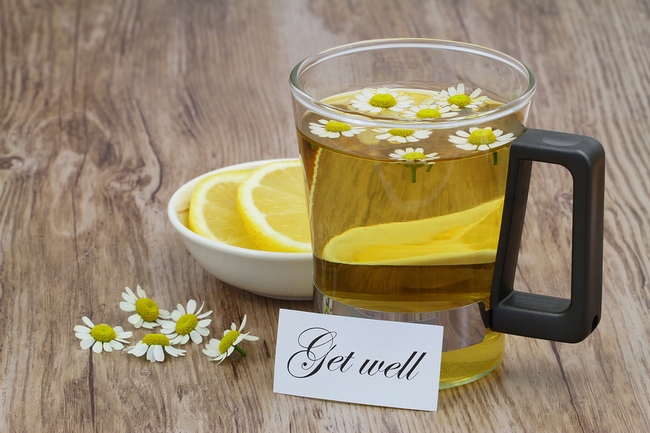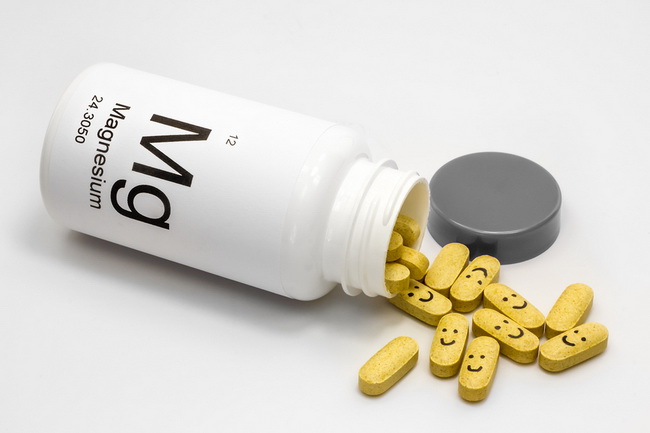- Make It Yourself Lavender Heart-Shaped Bath Bombs!
- 20 Things You Never Knew About “Down There”
- 12 Best Foods For Those Suffering From Arthritis Pain
- 12 Personal Hygiene Mistakes Almost Everyone Makes (Mom Never Told You About #4!)
- 15 Medicinal Plants And Herbs From The Cherokee People
- 12 Mind-Blowing Benefits Of Drinking Coconut Water During Pregnancy
- 12 Outstanding Winter Foods That Won’t Fatten You Up Like A Christmas Turkey
12 Non-Medicinal Ways to Fight Depression (#2 Seems Weird but It Works!)

Photo credit: bigstock.com
If you or someone you love is suffering from depression, then you know what a deep, dark tunnel it can be. You might think that you will never come out of it or that you will never get off the prescription-drug-roller-coaster. You know the one: You try a drug, it seems to work okay, you try taking less of it, you fall back into depression, you try going back to your old dosage, it doesn’t work, you increase the dose, it doesn’t work, your doctor weans you off, tries another drug, it doesn’t work, tries another drug, it takes six weeks to get results, it seems to work … on and on and on.
When most people say they are depressed what they really mean is that they are having a bad day or week. That “depression” is normal and temporary. When we talk about depression in this article, we are talking about a mental illness that goes far beyond feeling depressed because your boss is mad that you showed up late three days in a row.
If you are taking medication, you should never stop taking it without talking to your doctor first as this can result in serious side effects. Before trying any herbal product or lifestyle change, discuss it with your doctor to be certain you are doing the right thing and taking the right dose for you.
Keep reading and let’s look at some of the non-medicinal ways people have been using to win the fight against depression.
1. Knowledge is Power
Sometimes, knowing the root cause of your depression is the key to unlocking the depression cage in which you find yourself. In the Internet age, it is easier than ever to learn about the sources of mental anguish and depression. Learning what might be at the root of this problem can make you feel empowered, and it is extremely liberating!
For example, you might find that your depression is caused by something other than the typical lack of serotonin. Perhaps you suffered from substance abuse in the recent past, or you might have post-traumatic stress disorder from being in the military or having an abusive home life. Learning about the situational causes of depression, and then seeking the appropriate treatment, might be all you need to free yourself from this condition.
2. Eat a “Cheerful” Diet
Okay, so this sounds like something you would tell your five-year-old, but the truth is, eating foods that help improve our output of serotonin can have a dramatic effect. Some foods that are natural serotonin enhancers are:
- Fish (cold water fish rich in Ometa-3s such as salmon or sardines)
- Eggs (include the yolk!)
- Sour cherries
- Coconut oil
- Avocados
- Flaxseed oil or flaxseeds
You can make your life a whole lot easier by not reading food labels and worrying about toxic or unhealthy ingredients, and enjoy a natural diet of fresh vegetables, fruit, and nuts, seeds, organic grass fed chicken and wild-caught fish. These foods nourish both body and mind.
Continue to Page 2

Photo credit: bigstock.com
3. Talk Therapy
Sometimes referred to as cognitive behavioral therapy, this type of therapy is done with a certified behavioral analyst who talks to you about unhealthy patterns in your life and encourages you to change them. Together, you talk about alternate ways to do things or to react to things. This type of therapy can help you learn new and better ways to cope with negative people and negative or stressful situations, and change self-defeating thoughts and self-talk.
4. Chamomile Tea
Unfortunately, depression goes hand-in-hand with insomnia for many people. The crazy thing is that you can’t seem to get out of bed in the morning to do anything, but you are wide awake all night! Chamomile has been used for centuries as means of calming both the mind and body so that you can fall asleep naturally. Try a strong cup of chamomile tea about 30 to 45 minutes before bedtime. You might even want to put a small sachet of lavender under your pillow or inside your pillowcase to get an extra little boost of relaxing, sleep-inducing power.
5. Focus on the Physical
When you feel depressed, it’s easy to put all your attention and energy to how good you do NOT feel. Redirect just some of that energy, and focus on the physical part of your body. Light to moderate exercise can give you a jolt of endorphins that work like antidepressants. Try doing something you find enjoyable, such as swimming, walking in a beautiful park, hiking in the mountains, dancing or collecting sea shells on a long walk at the beach. Eat a healthy, natural diet, and drink plenty of pure water. Spend part of your day just focusing on your body and how good it feels to be you, to be alive. This certainly can’t hurt, and who knows? It just might help.
Continue to Page 3

Photo credit: bigstock.com
6. Think Magnesium!
Most Americans greatly underestimate the power of this little mineral. It is the fourth- most abundant mineral in the body and is responsible for more than 300 bodily systems, many of which regulate biomechanical function. When we are low on magnesium (and most of us are) we can’t keep the chemicals in our brains stable, we have low energy levels, we cannot regulate our heartbeat and we can’t synthesize DNA.
Our modern diets don’t have anywhere near the amount of magnesium that they used to — and no living thing can make magnesium. We must eat magnesium or absorb it in some other way to get our fill.
Increase your consumption of foods that are high in magnesium such as:
- Black beans
- Almonds
- Cashews
- Bananas
- Spinach
- Soymilk
- Kale
- Swiss chard
You can also try rubbing some magnesium oil on your feet each night before bed. You can also take regular baths with Epsom salt, which really isn’t a salt, but actually flakes of magnesium. There are magnesium supplements, but most people have a hard time digesting and absorbing magnesium this way.
7. Seek Social Support
You can reduce feelings of isolation and disconnection from people by maintaining a strong support network. You are not alone, and talking to others who have been, or are currently going through, many of the emotions and experiences you are going through can make things easier. You can find a group through your doctor, therapist, or even your local college or church.
Continue to Page 4

Photo credit: bigstock.com
8. Avoid Caffeine
Although it’s true that coffee and other drinks with caffeine can have health benefits, when you are suffering from depression, these just aren’t the drinks for you. Being exhausted from lack of sleep but wired from three or four cups of coffee is not a good combination. Coffee does not do anything for your mood or for the chemicals in your brain that regulate your mood. In fact, some studies have shown that those who drink more than two cups a day have lower levels of serotonin than those who don’t drink coffee. For now, at least, coffee is a drink you should avoid.
9. Drink Green Tea
Now that you are cutting out coffee, you have plenty of room for green tea! Although green tea contains some caffeine, in this case, the caffeine in green tea will work in conjunction with another substance in the tea called L-theanine. The two work together to give you the energy boost of caffeine without the crash. It can reduce stress and is one of the few things that can cross the blood-brain barrier. Green tea has also been shown to boost dopamine levels. So, simply exchange your coffee habit for a green tea habit, and you will be good to go!
10. Give Acupuncture a Try
There is a lot of controversy surrounding this ancient method of dealing with pain and promoting healing. For every person who says it helped them, you can find someone else who says it didn’t work for them. If you feel as though you have tried everything else, why not give acupuncture a shot? It has been shown that when the needle enters your skin, the body responds by releasing feel-good endorphins. This can leave you feeling happy, relaxed and more in control of your feelings than you have felt in years. For those who say that this method worked for them, these feelings last for weeks after a session.
Continue to Page 5

Photo credit: bigstock.com
11. Increase Your B Vitamins
All of the B vitamins (especially B12) play an important part in how your brain produces mood-impacting chemicals. When you lack any of the B vitamins, you can cheat your mind as well as your body. Vegans and older adults find that they have a difficult time getting sufficient amounts of B vitamins since they are mainly found in meat and animal products, such as eggs and milk. You can take a B-complex vitamin supplement or try eating more vitamin B-rich foods such as:
- Turkey
- Bell peppers
- Cheese
- Fish
- Spinach
- Shellfish
SEE ALSO: How to Naturally Treat Depression: 7 Easy Principles to Follow
12. St. John’s Wort
This herb has been used for hundreds of years to help stop depression. This herb works well for those suffering from mild to moderate depression. The active ingredient, hypericin, appears to affect the neurotransmitters in the brain in much the same way that drugs like Prozac do. This plant has far fewer side effects than prescription medications, but it can still interfere with other medications and produce side effects for some people. Always talk to your doctor to determine if St. John’s Wort is right for you, and determine the proper dose for your condition.
The happiest humans on the planet appear to be ones that live in the most natural state possible: Little or no junk food, a natural diet, an active lifestyle, lots of friends and close ties to family. They are those who enjoy the simple things in life, not keeping up with the Smiths. Do you best to make your life a natural one, and you will see the benefits — guaranteed!
References:





























